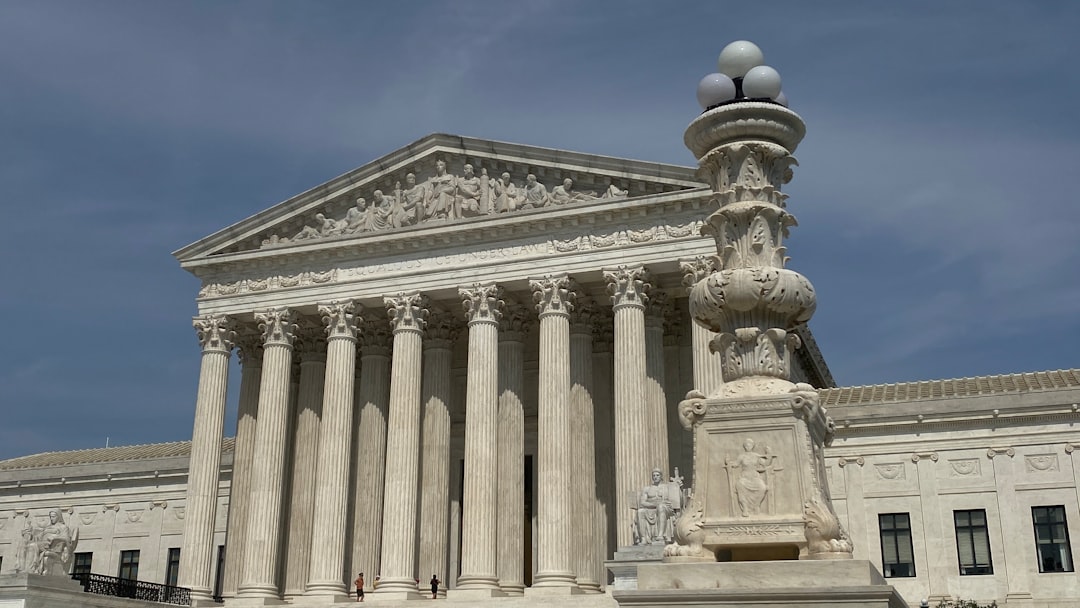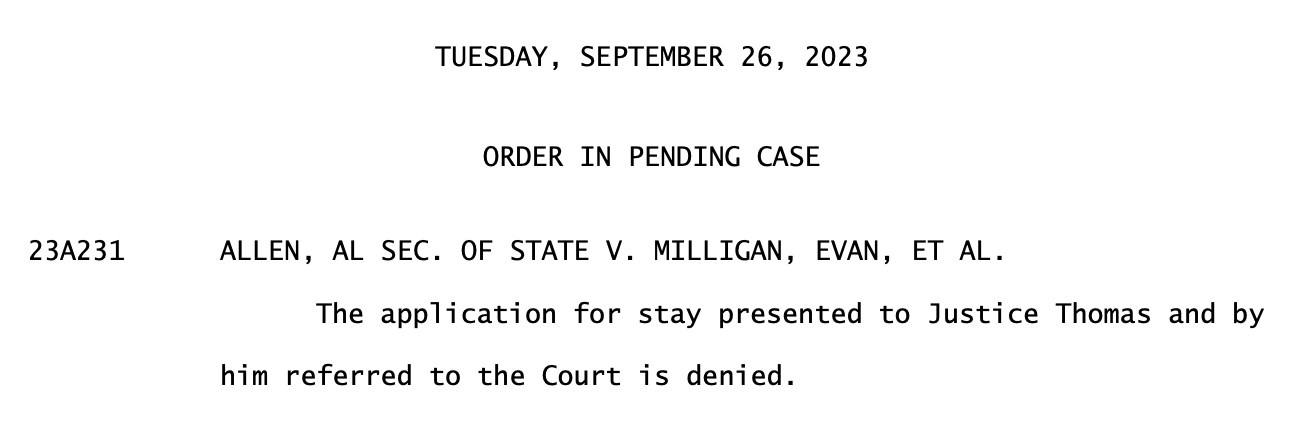SCOTUS rejects Alabama's attempt to ignore its congressional map ruling
High court signals that delay won't work this time — and that Black Alabamians will have a chance to elect a representative of their choosing in two districts in 2024.

With no noted dissents, the U.S. Supreme Court on Tuesday morning denied Alabama’s request to let it use a congressional map passed by its legislature and signed by Gov. Kay Ivey this summer with only one majority-Black district — a strong rebuke of a stunning act of defiance from the state and its Republican political leadership.
The map, vigorously defended by Secretary of State Wes Allen and Attorney General Steve Marshall, effectively ignored a lower-court ruling that was affirmed by the Supreme Court in June requiring the state to draw a map with two districts in which Black voters have the opportunity to elect a representative of their choice (called “opportunity districts”).
With the high court’s orders Tuesday in the pair of cases challenging the maps that have gone back and forth to the court together over the past few years, the district court can continue with its process, already moving toward resolution, of ordering a map that would contain two opportunity districts.
The Supreme Court's move signals that Alabama’s delay tactics won't likely work this time — and that Black voters in Alabama will actually have a chance to elect a representative they want in two districts in 2024.
In February 2022, the state got a stay from the Supreme Court of the district court’s ruling — which found that the state’s map violated the Voting Rights Act and had ordered that new maps be created. The 5-4 Supreme Court stay allowed the map the district court ruled was illegal to be used in the 2022 election.
When the high court sided with the district court in June 2023, strongly reaffirming Section 2 of the Voting Rights Act and the test used to consider vote-dilution challenges brought under the law, it soon lifted the stay, leading Alabama to create its new map.
Then, when the 2023 map still lacked a second opportunity district, the district court quickly stepped in. After briefing and arguments, the court ruled on Sept. 5 that the new map still violated the Voting Rights Act — harshly criticizing the state’s actions in passing the map and ordering the special master appointed by the district court to present it with its own maps by Sept. 25.
On Monday, the special master did so, issuing his report and recommendation of three remedial maps (one, two, three) — all of which contain two opportunity districts.
A hearing on the report and any objections is already tentatively set for Oct. 3, with an order selecting a map expected soon thereafter.
Although Alabama might very well still try to delay the approval or usage of the court-selected map, Tuesday’s Supreme Court move — particularly given the lack of any noted dissents — sends an unusually strong and undivided (at least publicly) sign from the high court that it is not giving in to delay this time.
This is a developing story. Check back at Law Dork for the latest.




I hope Georgia and Louisiana (and I guess Florida too) are paying attention.
Hot Damn. Fun to see the Extremes say "ignore me at your peril" in nice brief legalese.